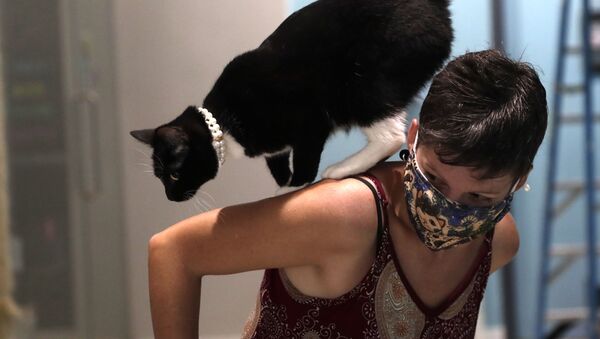Cats became friendlier to their owners amid COVID-19 lockdowns, according to a Direct Line pet insurance UK-wide survey published by Lad Bible. Nearly 90 percent of respondents revealed that their cats, who are commonly not known as the most social pets, started providing emotional support for their owners during lockdown.
One of the respondents, a woman named Lottie, shared her experience with her 15-year-old cat named Humphrey.
"He has never been a cuddly cat and didn't enjoy a tickle like other cats I've had. He is a friendly boy, but he's very aloof and loved being out and about. But a few weeks into lockdown he started sitting on my lap when I'm watching TV which wouldn't have happened before. And now he likes coming up to bed with us. I always take the dogs out last thing and Humph now waits for me in the garden", she said.
Anther 51 percent of people noticed their cats getting out less, apparently in a move that shared a tough lockdown with their owners.
The survey also found that 95 percent of dogs did not gain weight, even though their owners were at home most of their time to provide them snacks.
When it comes to dogs, vets warn, there are things owners should keep in mind when the lockdown is eased, such as separation anxiety - since dogs are, contrary to the cats, known as social animals, their owners returning to the offices might affect them more.
"Dogs are super social - if it was up to them, they would just have their owners around 24 hours a day. It's inevitable that it's going to be a massive adjustment," Veterinarian Dr Kate Adams said. "They can get up to everything from chewing electrical cords, or eating stuffing out of couches or their beds, or even just something small like falling off the couch and hurting their back".
However, one should not expect that kind of suffering from a cat.
"Honestly, cats will probably be very glad when we all go back to work. They'll probably be like, 'Okay, bye guys, I want this house back to myself now'", Adams noted.

